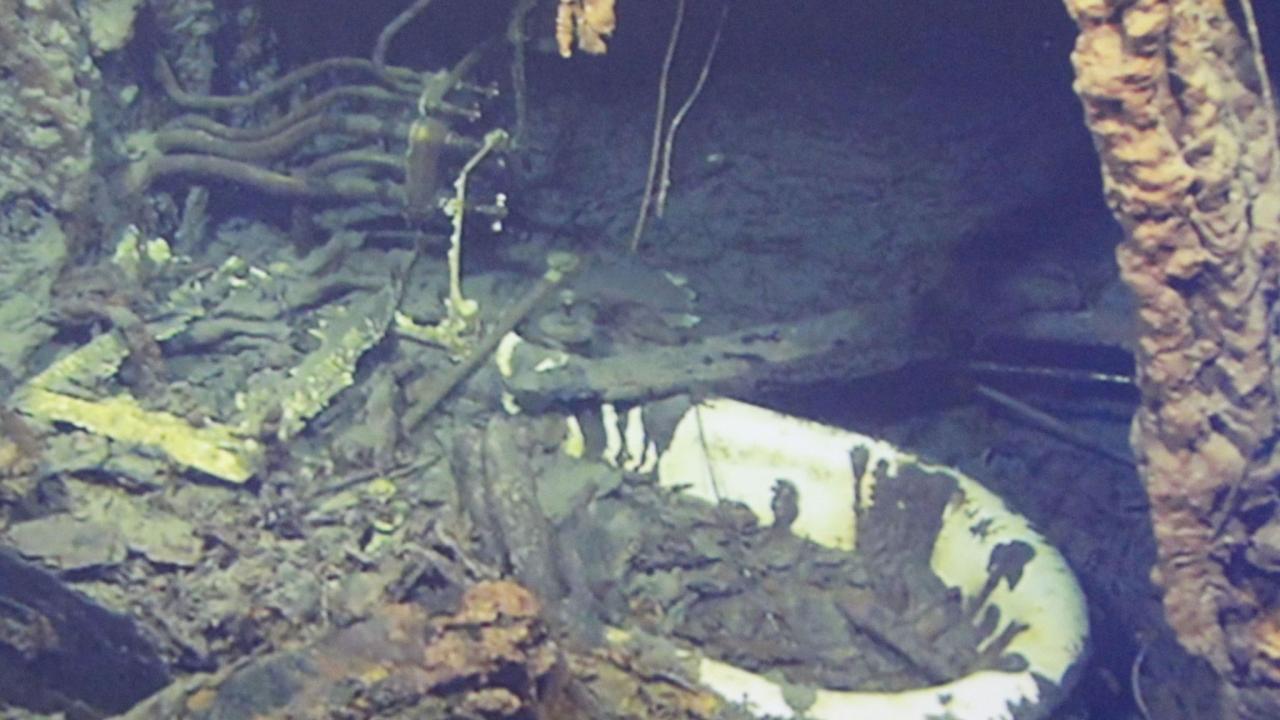Grief is like a shipwreck, a devastating experience that leaves us emotionally shattered and adrift. It’s a journey through turbulent waters, where intense feelings and turmoil can threaten to engulf us. This analogy aptly captures the profound emotional impact of grief, a journey that can leave us questioning our very existence.
The analogy of grief as a shipwreck provides a framework for understanding the psychological and physical toll grief takes on individuals. It illuminates the stages of grief, the coping mechanisms we employ, and the importance of social support during this arduous journey.
Emotional Impact of Grief

Grief, like a tempestuous shipwreck, shatters the tranquility of our hearts, leaving us adrift in a sea of intense emotions. It is a harrowing journey that wreaks havoc upon our psyche and physical well-being.
The initial impact of grief can be akin to a tsunami, sweeping over us with an overwhelming force of sadness, anger, and disbelief. These emotions can ebb and flow, leaving us feeling lost and disoriented.
Psychological Effects
- Prolonged sadness, tearfulness, and a sense of emptiness
- Anxiety, restlessness, and difficulty concentrating
- Withdrawal from social activities and a loss of interest in once-enjoyable pursuits
- Difficulty sleeping, nightmares, and changes in appetite
Physical Effects
- Fatigue, muscle tension, and headaches
- Digestive problems, such as nausea and constipation
- Increased susceptibility to illness and a weakened immune system
- Changes in blood pressure and heart rate
Stages of Grief

The analogy of a shipwreck provides a vivid representation of the stages of grief. As with a shipwreck, where individuals must navigate through tumultuous waters and salvage what they can, grief involves a journey through a series of emotional and psychological stages.
These stages, as proposed by Elisabeth Kübler-Ross, are not necessarily experienced in a linear or predictable order. Individuals may experience them in a unique manner, depending on their circumstances and personal characteristics.
Denial
- Individuals may initially deny the reality of the loss, refusing to accept the truth.
- They may engage in behaviors such as isolating themselves or avoiding reminders of the deceased.
Anger
- As the denial fades, anger may emerge, directed at the deceased, themselves, or the world.
- They may experience outbursts, irritability, and a sense of injustice.
Bargaining
- In an attempt to regain control, individuals may engage in bargaining, promising to change their behavior or make sacrifices in exchange for the return of the deceased.
- They may make deals with a higher power or fate.
Depression
- A sense of hopelessness and despair sets in as the reality of the loss becomes more apparent.
- Individuals may withdraw from social interactions, lose interest in activities, and experience feelings of worthlessness.
Acceptance, Grief is like a shipwreck
- Eventually, individuals may reach a point of acceptance, where they come to terms with the loss and begin to rebuild their lives.
- They may not fully recover from the pain, but they learn to live with it and find meaning in their lives again.
Coping Mechanisms

Grief is a complex and deeply personal experience that can affect individuals in various ways. To navigate the challenges of grief, individuals can employ different coping mechanisms to help them process their emotions and rebuild their lives.
Grief is like a shipwreck, where emotions crash and survival seems uncertain. Just as navigating the wreckage of a ship requires knowledge and guidance, understanding the complexities of grief can be aided by resources like nbme 11 answers step 2 . By learning about the stages and coping mechanisms, we can equip ourselves with the tools to navigate the tumultuous waters of grief, gradually finding our way back to shore.
Coping mechanisms are strategies or behaviors that individuals use to manage their grief and cope with the emotional pain and distress associated with loss. These mechanisms can be healthy or unhealthy, and their effectiveness can vary depending on the individual and the specific situation.
Healthy Coping Mechanisms
Healthy coping mechanisms allow individuals to process their grief in a constructive and adaptive way, promoting their well-being and recovery. Some examples of healthy coping mechanisms include:
- Talking about their feelings:Sharing their thoughts and emotions with trusted friends, family members, or a therapist can provide emotional support and validation.
- Engaging in self-care activities:Prioritizing physical and mental health by getting enough sleep, eating a healthy diet, and exercising regularly can help individuals manage stress and cope with the challenges of grief.
- Seeking professional help:Consulting with a therapist or counselor can provide a safe and supportive space to process grief, develop coping strategies, and work through underlying issues.
- Finding meaning in the loss:Reflecting on the life of the deceased and identifying ways to honor their memory can help individuals find purpose and meaning in their grief.
- Practicing mindfulness and meditation:These techniques can help individuals become more aware of their emotions, reduce stress, and promote emotional regulation.
Unhealthy Coping Mechanisms
Unhealthy coping mechanisms, on the other hand, can hinder an individual’s ability to process grief and may lead to negative consequences. Some examples of unhealthy coping mechanisms include:
- Denial:Refusing to acknowledge or accept the reality of the loss can delay or prevent the grieving process.
- Avoidance:Attempting to avoid thoughts, feelings, or situations related to the loss can lead to emotional numbing and unresolved grief.
- Substance abuse:Using alcohol or drugs to cope with emotional pain can lead to addiction and other health problems.
- Self-harm:Engaging in behaviors that intentionally cause physical pain can be a sign of severe emotional distress and requires immediate professional attention.
- Isolating oneself:Withdrawing from social interactions and relationships can worsen grief and hinder recovery.
Social Support
Social support is crucial during grief, as it provides a network of people who can offer comfort, assistance, and validation.
Family and friends can provide emotional support by listening attentively, offering words of encouragement, and sharing memories of the deceased. They can also assist with practical tasks, such as running errands, preparing meals, or taking care of children.
Support Groups
Support groups bring together individuals who have experienced similar losses. These groups offer a safe and understanding environment where members can share their experiences, offer support, and learn coping mechanisms. They can also provide information about grief and connect members with resources and services.
Social Isolation
Social isolation can exacerbate grief and hinder recovery. When individuals isolate themselves, they may miss out on the support and validation that can help them cope. Isolation can also lead to negative thoughts and feelings, such as loneliness, worthlessness, and hopelessness.
Recovery and Resilience: Grief Is Like A Shipwreck

Recovery from grief is a gradual process that involves rebuilding one’s life after a significant loss. Resilience, the ability to bounce back from adversity, plays a crucial role in this journey. Individuals who successfully navigate grief find ways to cope with their pain, adapt to their new reality, and discover meaning and purpose amidst loss.
Finding Meaning in Loss
One of the challenges of recovery is finding meaning in the face of loss. Grief can shatter our assumptions about life and leave us feeling lost and directionless. However, individuals who embrace resilience often find ways to honor the memory of their loved ones by living their lives to the fullest.
They may establish foundations, volunteer their time, or pursue creative endeavors that reflect the values and passions of the person they lost.
Examples of Resilience
Throughout history, countless individuals have demonstrated remarkable resilience in the face of grief. One such example is Viktor Frankl, a Holocaust survivor who found meaning in his suffering by developing a philosophy of hope and purpose. Another example is Malala Yousafzai, who survived a Taliban assassination attempt and became a global advocate for education.
These individuals exemplify the power of resilience to transform grief into a catalyst for growth and positive change. Their stories inspire us to believe that even in the darkest of times, we can find ways to rebuild our lives and emerge stronger.
FAQ Corner
How can I cope with the intense emotions of grief?
Acknowledge and validate your emotions. Allow yourself to feel the pain, anger, sadness, and confusion without judgment. Seek support from trusted individuals, support groups, or a therapist.
What are the stages of grief?
The stages of grief are not linear and can vary from person to person. Common stages include denial, anger, bargaining, depression, and acceptance.
How can I prevent grief from isolating me?
Reach out to family, friends, or support groups. Share your experiences and feelings with others who understand what you’re going through. Avoid isolating yourself and engage in activities that bring you joy.